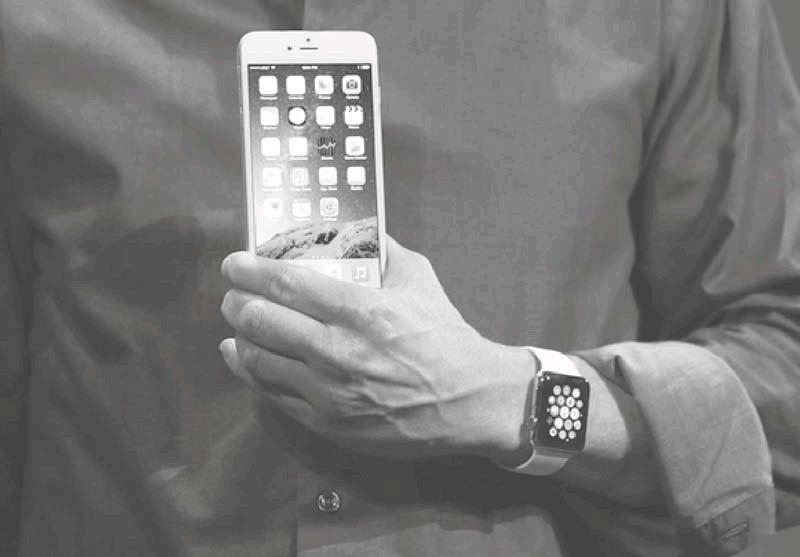Apple:Big Trouble in Big China
Apples App Store Hit by Malware Attack in China
Apple has said it is taking steps to remove a malicious program found in a number of applications used by owners of iPhones and iPads in China.
It is thought to be the first largescale attack on Apples App Store.
The US tech giant said hackers had embedded a malicious code into the apps by persuading developers to use a counterfeit version of the firms own software.
The program called XcodeGhost allows hackers to collect data from devices.
The infected applications include many used by iPhone and iPad owners in China such as Tencents hugely popular WeChat app, a music downloading app and an Uber-like car hailing app.
A spokeswoman said the apps had now been removed.
“Weve removed the apps from the App Store that we know have been created with this counterfeit software,” Apple spokeswoman Christine Monaghan said in an email.
“We are working with the developers to make sure theyre using the proper version of Xcode to rebuild their apps.”
On its official WeChat blog, Tencent said that the security issue affects an older version of the app - WeChat 6.2.5 and the newer versions were not impacted.
It added that an initial investigation showed that no data theft or leakage of user information had occurred.
Cyber security firm Palo Alto Networks said that potentially hundreds of millions of users were impacted by the infected apps.
“We believe XcodeGhost is a very harmful and dangerous malware that has bypassed Apples code review and made unprecedented attacks on the iOS ecosystem,” the firm said on its website.
But Wee Teck Loo, head of consumer electronics at market research firm Euromonitor International said he does not see any major impact on the sale of Apple products despite the presence of this malware.
“It is definitely embarrassing for Apple but the reality is that malware is a persistent problem since the days of PCs and the problem will multiply as the number of mobile devices explodes from 1.4 billion units in 2015 to 1.8 billion in 2020,” he said.
In fact, consumers are less cautious on mobile devices than on PCs, he added.
“In emerging markets like China or Vietnam, mobile devices are their first connected product and security is taken for granted,” he said.
“Consumers in emerging markets are also less protective of privacy and security issues,” said Mr Wee.
Earlier in September, login names and passwords for more than 225,000 Apple accounts were stolen by cyberthieves in China.
It was uncovered by security firm Palo Alto Networks while investigating suspicious activity on many Apple devices. It found a malicious software family that targets unlocked iPhones.
The majority of people affected were in China.
Apple Is Said to Deactivate Its News App in China
Apple News app users in China are alerted: “News isnt supported in your current region.”
Apple has disabled its news app in China, according to a person with direct knowledge of the situation, the most recent sign of how difficult it can be for foreign companies to manage the strict rules governing media and online expression there.
The Apple News app, which the company announced in June, is available only to users in the United States, though it is being tested in Britain and Australia. Customers who already downloaded the app by registering their phones in the United States can still see content in it when they travel overseas— but they have found that it does not work in China.
Those in China who look at the top of the Apple News feed, which would normally display a list of selected articles based on a users preferred media, instead see an error message: “Cant refresh right now. News isnt supported in your current region.”
Apple, based in Cupertino, Calif., declined to comment.
Device Censorship in China
Greater China is now Apples second-largest source of revenue after the United States, with sales of more than$13 billion in the third quarter. That means the company is most likely taking a careful approach to delivering new content, like that on its news app, within China.
Beijing generally insists that companies are responsible for censoring content inside China. In Apples case, that would mean it would probably have to develop a censorship system — most Chinese companies use a combination of automated software and employees— to eliminate sensitive articles from feeds.
For now, Apple seems to be avoiding the problem by completely disabling the service for users in China.
Still, even if the company is moving carefully to appease the government, the move is already troubling some users. Larry Salibra, an entrepreneur who founded Pay4Bugs, a software testing service, pointed out the issue last week on Twitter. In a written interview, Mr. Salibra said he found what Apple was doing “very disconcerting.”
In a post on Reddit, Mr. Salibra went further, writing, “Theyre censoring news content that I downloaded and stored on my device purchased in the USA, before I even enter China just because my phone happens to connect to a Chinese signal floating over the border.”
“On device censorship is much different than having your server blocked by the Great Firewall or not enabling a feature for customers with certain country iTunes account,” his post continued.“That Apple has little choice doesnt make it any less creepy or outrageous.”

